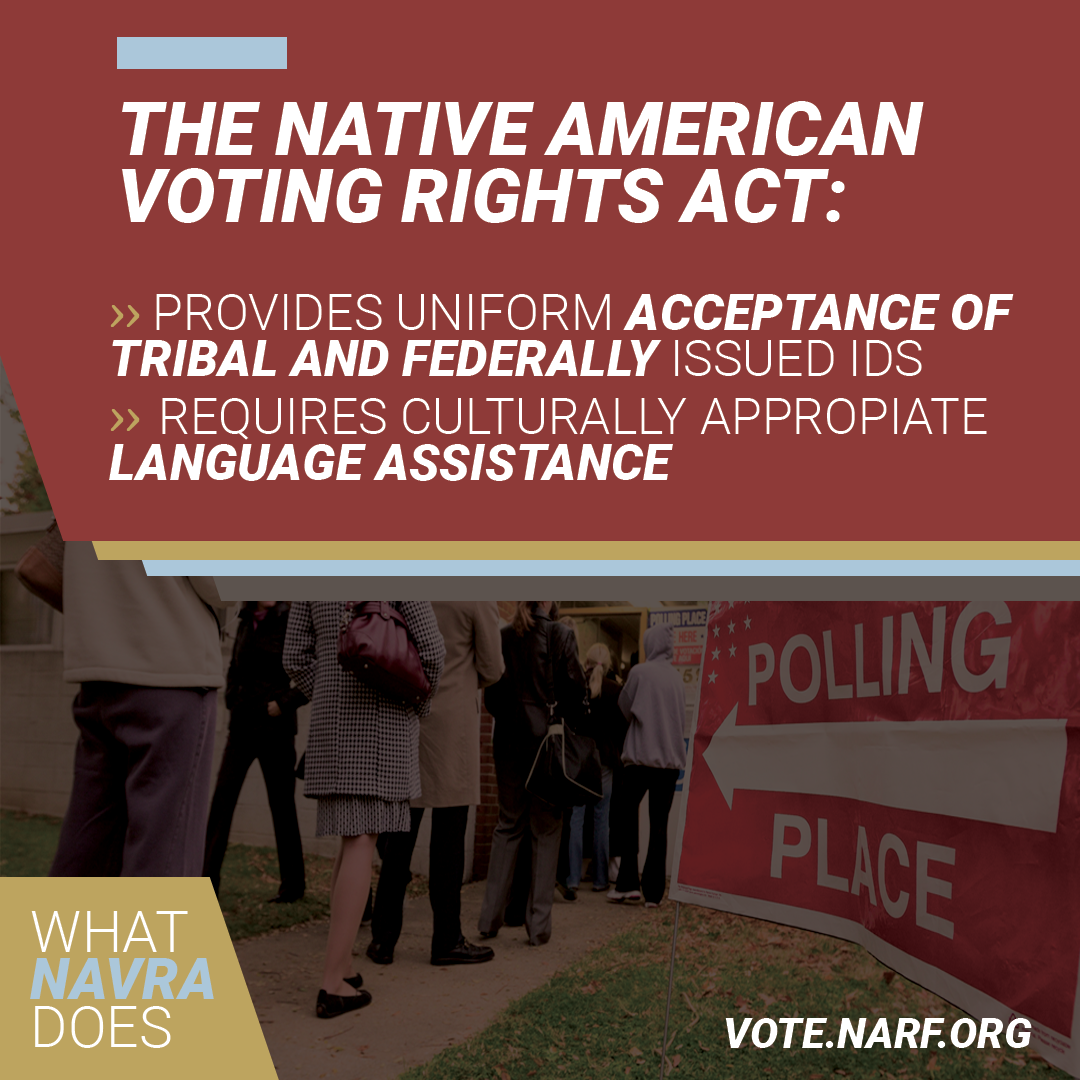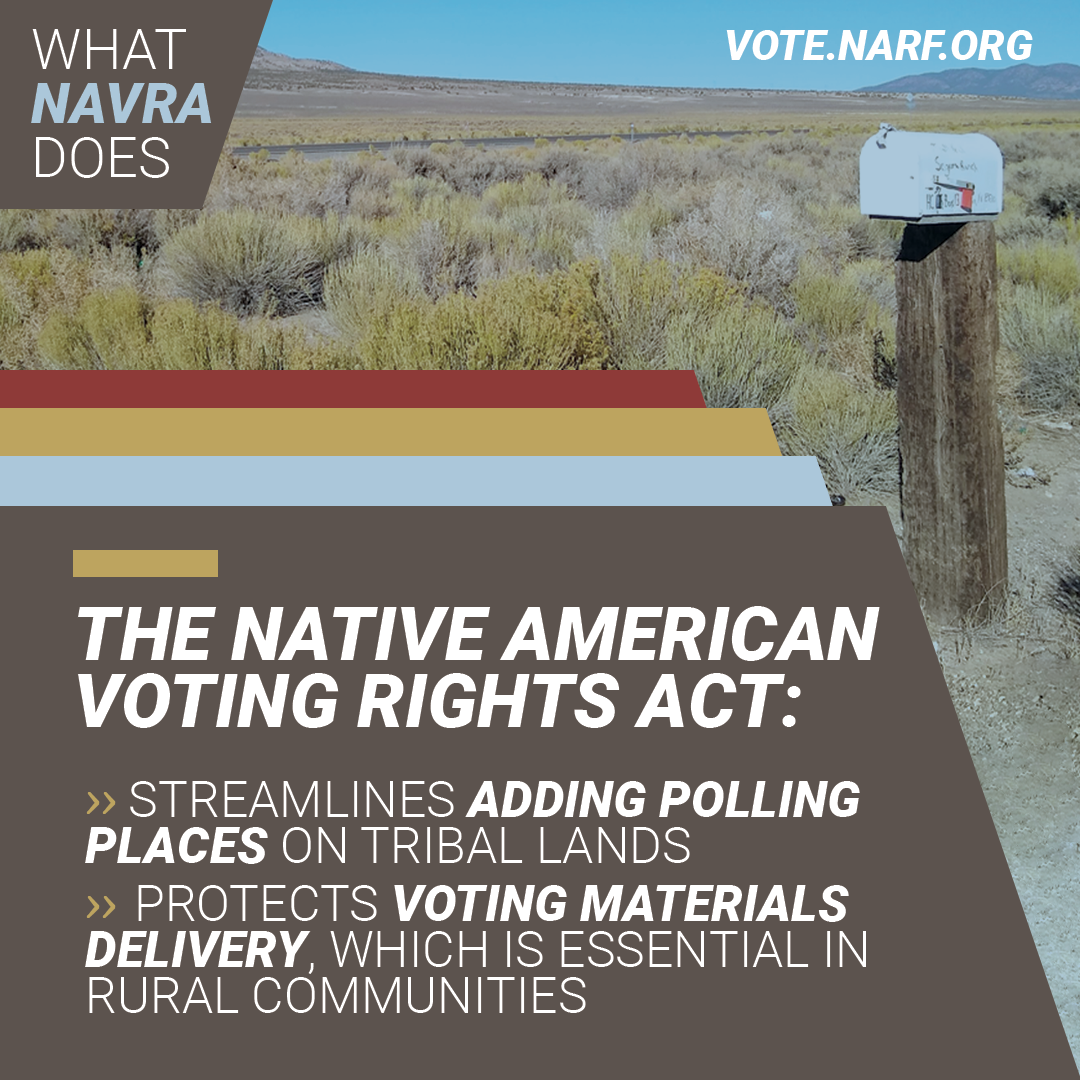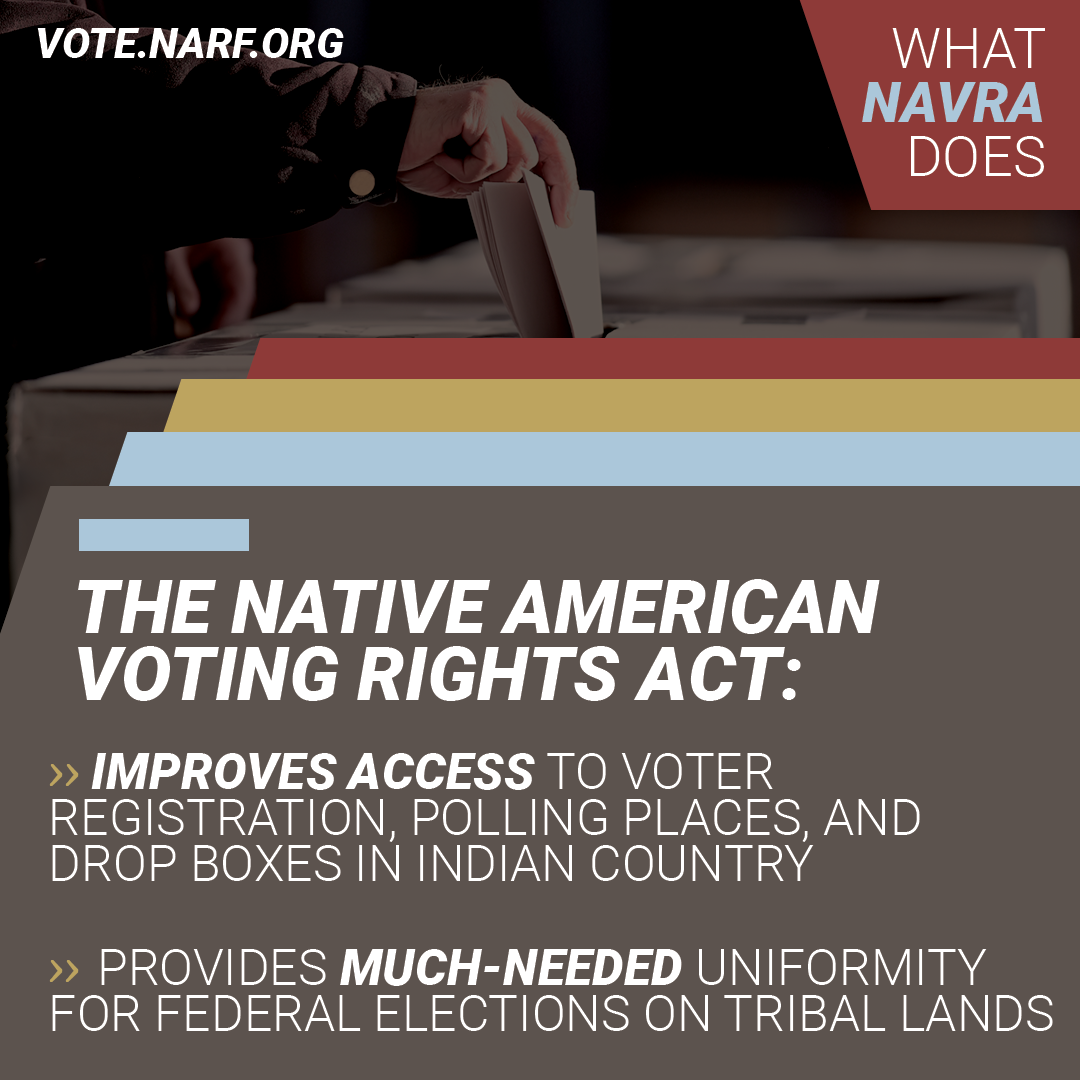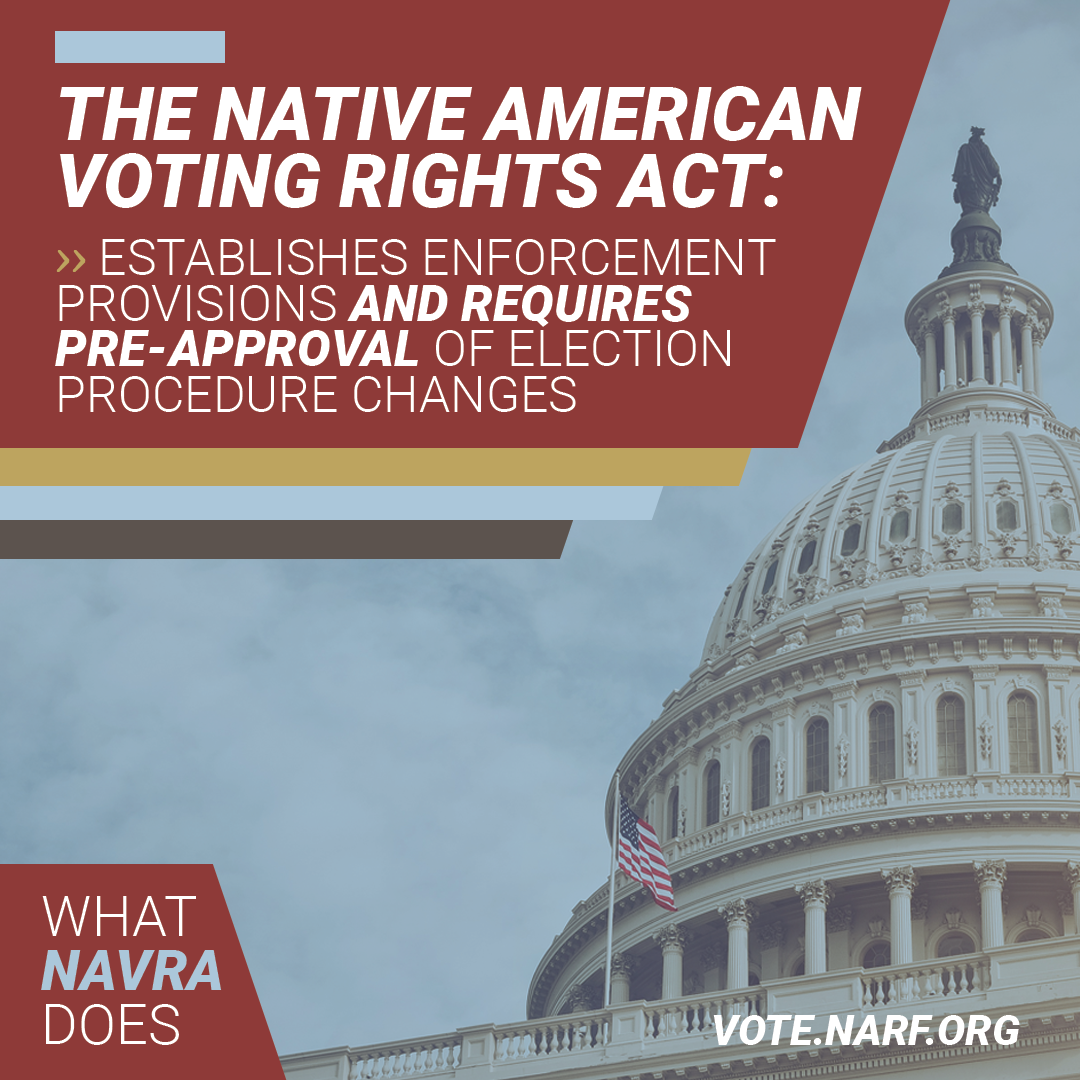Indianz.Com > News > Gaylord News: Voting rights bill addresses long-standing obstacles in Indian Country
Attorneys, advocates reflect on new Native American Voting Rights bill
Friday, September 17, 2021
Gaylord News
Some people with stakes in Indigenous voter rights are looking to the Native American Voting Rights Act to help address voting and election problems for Oklahoma tribes.
“This legislation greatly improves the tools and resources available to help Native Americans exercise their right to vote, which is especially important for those living in rural areas,” Rep. Tom Cole, R-Oklahoma, said when he introduced the bill to the House [H.R.5008] alongside U.S. Rep. Sharice Davids, D-Kansas, on August 13.
Native Organizers Alliance is a volunteer group known for helping to organize and build Indigenous community leaders and groups. One primary objective has been getting Native voters registered for tribal, state and national elections.
The alliance serves several tribes and states across the nation, including Oklahoma. Jennifer Bailey, a member of the Cheyenne and Arapaho tribe, volunteers there when needed. Bailey hopes the Native American Voting Rights Act will address some of the long-standing concerns she’s had for voting participation in her own tribe. “A lot of them don’t trust the voting process,” Bailey said. “They feel like it’s built against them. In reality, it is the voter suppression that’s a tactic to refrain Native Americans from actually voting and exercising their rights to vote. Voting rights is a trust responsibility by the federal government to the Native Americans. It’s a constitutional right for everybody.”Advocating for tribal nations and tribal people through participation in the political process is one of the most important choices we can make. #AaronPayment #NativeVote #NAVRA https://t.co/B76drm9oNO
— indianz.com (@indianz) August 31, 2021
Native American Voting Rights Act Social Media Toolkit: vote.narf.org





Note: This story originally appeared on Cronkite News. It is published via a Creative Commons license. Cronkite News is produced by the Walter Cronkite School of Journalism and Mass Communication at Arizona State University.
Search
Filed Under
Tags
More Headlines
Montana Free Press: Blackfeet Nation citizens cite treaty rights in lawsuit over tariffs
Cronkite News: A ‘mural with a message’ rises in Arizona
Chuck Hoskin: Cherokee Nation is an economic powerhouse
Native America Calling: Philanthropy fills in the gaps
AUDIO: Examining 50 years of the Indian Self-Determination and Education Assistance Act in Indian Country
Native America Calling: The next 50 years of self-governance
Cronkite News: Food sovereignty movement promotes Native foods
VIDEO: Examining 50 years of the Indian Self-Determination and Education Assistance Act in Indian Country
Native America Calling: Fresh Native creativity with a new play and new television show
AUDIO: Native American Education – Examining Federal Programs at the U.S. Department of Education
VIDEO: Native American Education – Examining Federal Programs at the U.S. Department of Education
Native America Calling: Indigenous business and the unpredictable new trade landscape
Written testimony for Senate Committee on Indian Affairs hearing on Department of Education
Native America Calling: An imbalance of deadly force by police in Canada
‘Betrayal’: Indian Country slams closure of Department of Education
More Headlines
Cronkite News: A ‘mural with a message’ rises in Arizona
Chuck Hoskin: Cherokee Nation is an economic powerhouse
Native America Calling: Philanthropy fills in the gaps
AUDIO: Examining 50 years of the Indian Self-Determination and Education Assistance Act in Indian Country
Native America Calling: The next 50 years of self-governance
Cronkite News: Food sovereignty movement promotes Native foods
VIDEO: Examining 50 years of the Indian Self-Determination and Education Assistance Act in Indian Country
Native America Calling: Fresh Native creativity with a new play and new television show
AUDIO: Native American Education – Examining Federal Programs at the U.S. Department of Education
VIDEO: Native American Education – Examining Federal Programs at the U.S. Department of Education
Native America Calling: Indigenous business and the unpredictable new trade landscape
Written testimony for Senate Committee on Indian Affairs hearing on Department of Education
Native America Calling: An imbalance of deadly force by police in Canada
‘Betrayal’: Indian Country slams closure of Department of Education
More Headlines